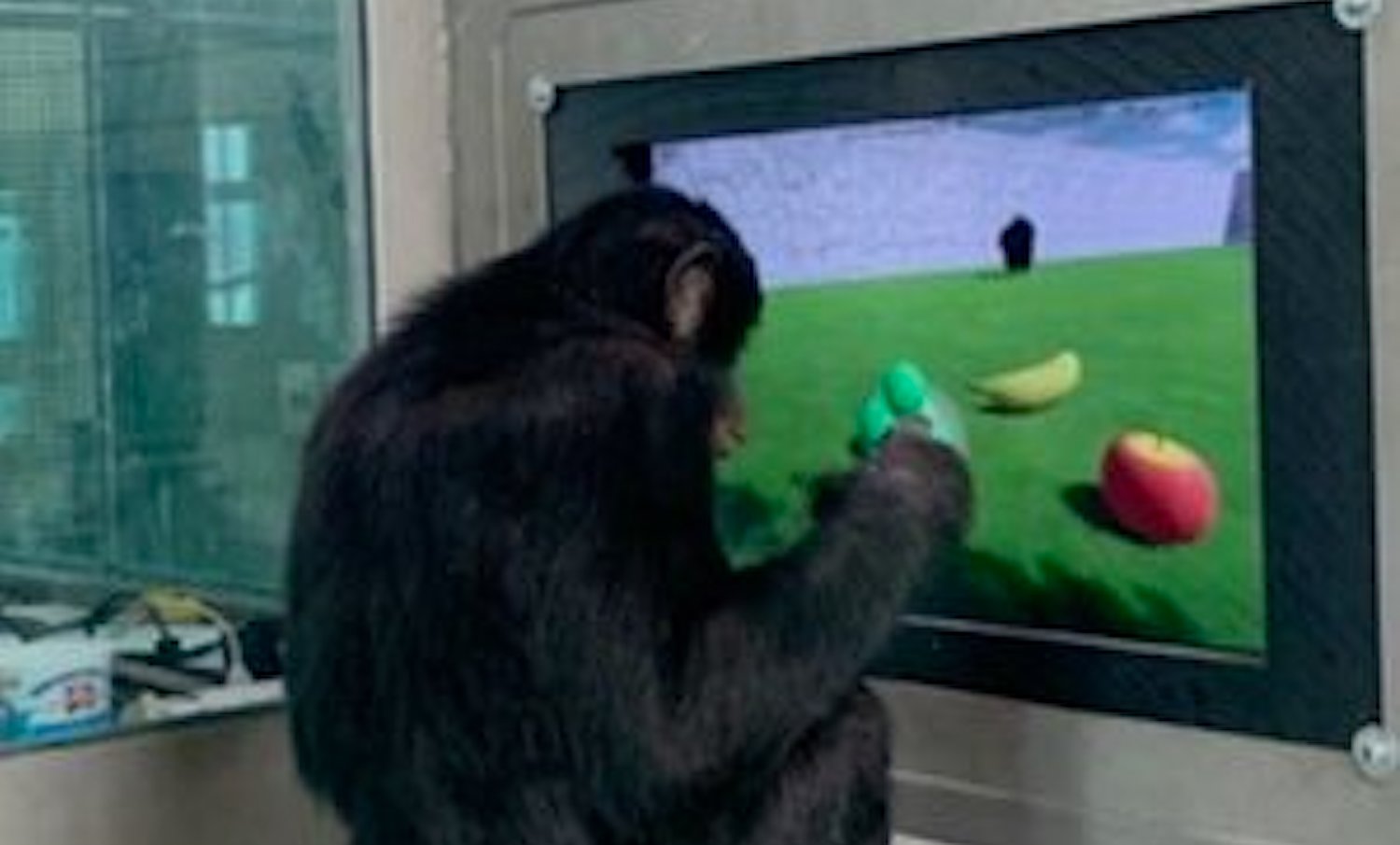So far four bonobos, Kanzi, Teco, Elykia and Mali, along with some chimpanzees at Edinburgh Zoo, have begun to show they can solve virtual tasks such as intercepting a moving prey (e.g. running virtual stags) that will allow the research team to begin to test more challenging intentional cooperative tasks where the coordination of two or more individuals is required to capture moving virtual prey (e.g. monkeys).
Dolins said she and her research team are designing experiments to see if they can detect unmistakable signs of intentional cooperation or we-cooperation. That’s the understanding of the self in relation to others to create socially-agreed on plans and achieve mutual goals.
“Although many species engage in joint action (two or more individuals acting toward a shared goal), evidence has previously suggested that only humans possess we-cooperation and shared we-intentions that flexibly support intentional joint action,” Dolins says. “Young human children show the ability to carry out intentionally shared tasks. But what if primates have this ability and we just don’t know how to recognize it or have not been able to provide them with the opportunity to show this?”
To move this research forward, Dolins and her team recently created new scenarios that virtual reality programmers are designing to see how the non-human primates interact with each other when there are complex tasks — like needing to spatially plan ahead to figure out where to intercept a moving figure.
Another exciting aspect of Dolins’ research work is the partnership with Artificial Intelligence researchers. AI agents, or computational minds, are learning in the same virtual scenarios as the non-human primates.
The goal is to have the AI agents generate multiple learning strategies for comparison with the nonhuman and human apes, and to develop models of cooperation and competition to test against scenarios in the real world. “It’s part of the timeless endeavor to understand ourselves and our place in the natural world,” Dolins said. “As we look to a future with new ‘species’ of computational minds (e.g., AI agents), the ancient questions about our relationship to nature are profoundly transformed into new and more general questions — questions that this project begins to prepare us for.”
With recent funding from another TWCF grant, Dolins helped initiate another project — “Proper Names and Individual Uniqueness in Bonobos and Dolphins” — that will study how these animals identify themselves and one another in their groups, how they recognize individual identities, and what effect this may have on their social groups.
While noted researchers from other institutions study the dolphin aspect (Diana Reiss and Brenda McCowan), Dolins will conduct parallel studies with lexigram-proficient bonobos to create a comparative framework for understanding the capacity for naming in multiple non-human species.
“My team and I are very excited to be able to explore these ideas and discover what foundations may exist for nonhuman animals to possess the capacity for naming themselves and recognizing the names (identities) of others, challenging one more barrier believed to separate humans from other species,” Dolins said.
Dolins said they are investigating additional insights into apes’ memory and communication. They're testing whether the non-human primates will show connections to images/VR avatars of the individuals they know and knew (in the past) in real life — so they can determine long-term memory and recognition from these visual representations, which is a sophisticated cognitive ability. The researchers will, for example, test whether a 42-year-old bonobo named Kanzi at the Ape Initiative facility will recall and recognize films and images of Matata, his adopted mother who died nearly a decade earlier.
As more data is gathered in all of these projects, Dolins hopes people realize how connected we are to other species — the more we learn, the more similarities that we will find. And the more similarities, the more we should care about and for them.
“Proper Names and Individual Uniqueness in Bonobos and Dolphins” research collaborators are principal investigator Carrie Figdor, Brenda McCowan and Diana Reiss.
Dolins’ “The Cognitive Foundation of Social Minds” research collaborators are Josep Call, Josh Tenenbaum, Richard Lewis, Max Kleiman-Weiner and Ken Schweller.
Article by Sarah Tuxbury.




